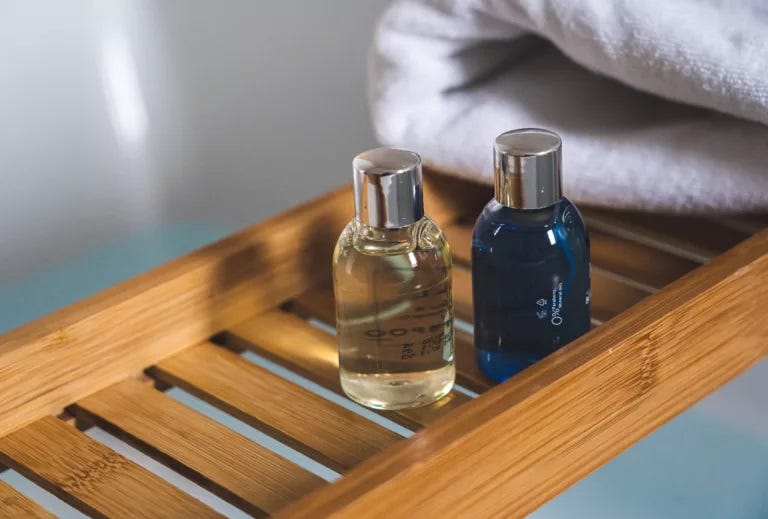Crafting Natural Conditioners at Home for Healthier Hair
In the realm of beauty, the pursuit of healthier, more vibrant hair often leads us to explore various conditioners. But what if you could create your own nourishing concoctions right at home, using nature’s finest ingredients? Enter the world of DIY natural conditioners — a journey that not only elevates your hair care routine but also empowers you to tailor your products to your unique needs. In this ultimate guide, we’ll delve into the art of crafting DIY natural conditioners, from selecting ingredients to creating recipes, and uncover the abundant benefits they bring to your locks.

Creating your own natural conditioners goes beyond personalization — it’s a celebration of nature’s gifts and a conscious step towards cleaner beauty. By choosing ingredients that resonate with your hair’s specific requirements, you’re embracing a holistic approach to hair care that nurtures both your locks and your well-being.
Essential Ingredients for DIY Natural Conditioners
- Carrier Oils: Rich in vitamins and essential fatty acids, carrier oils like coconut, jojoba, and argan oil provide deep hydration and promote hair health.
- Essential Oils: These potent extracts offer a range of benefits, from soothing an irritated scalp to promoting hair growth. Lavender, rosemary, and tea tree are popular choices.
- Plant-Based Butters: Shea butter and cocoa butter are luxurious additions that add moisture, improve manageability, and enhance texture.
- Natural Humectants: Honey and aloe vera gel are natural humectants that attract and retain moisture, leaving hair soft and hydrated.
- Vinegar: Apple cider vinegar helps balance pH, remove buildup, and add shine to your hair.
- Herbal Infusions: Infusing herbs like chamomile, nettle, and rosemary into your conditioner can offer additional benefits, such as scalp stimulation and dandruff control.
DIY Natural Conditioner Recipes
1. Nourishing Coconut Milk Conditioner:
- ½ cup coconut milk
- 2 tablespoons honey
- 2–3 drops essential oil (lavender or ylang-ylang)
- Mix ingredients and apply to damp hair. Leave for 20–30 minutes before rinsing.
2. Rejuvenating Aloe Vera Conditioner:
- ½ cup aloe vera gel
- 1 tablespoon jojoba oil
- 5–7 drops rosemary essential oil
- Combine ingredients and apply to clean, damp hair. Leave for 15–20 minutes before rinsing.
3. Herbal Infusion Rinse:
- 1 cup water
- 2 tablespoons dried herbs (rosemary, chamomile, or lavender)
- 1 tablespoon apple cider vinegar
- Brew the herbs in hot water, strain, and mix with apple cider vinegar. Use as a final rinse after shampooing.
Benefits of DIY Natural Conditioners
- No Harmful Chemicals: DIY natural conditioners are free from synthetic chemicals and preservatives, reducing the risk of adverse reactions and promoting overall hair health.
- Personalized Care: You have the power to tailor your conditioner to your hair’s specific needs, whether it’s hydration, shine, or scalp health.
- Environmental Consciousness: By using natural and sustainable ingredients, you’re contributing to a greener beauty routine that minimizes harm to the environment.
- Cost-Effective: Many natural ingredients can be found in your kitchen or local grocery store, making DIY natural conditioners budget-friendly.
- Holistic Well-Being: The aromatherapeutic benefits of essential oils offer a sensory experience that relaxes the mind and uplifts the spirit.
Tips for Crafting DIY Natural Conditioners
- Patch Test: Perform a patch test to ensure you’re not sensitive to any of the ingredients.
- Quality Ingredients: Choose high-quality, organic ingredients whenever possible to maximize the benefits.
- Proportion Matters: Follow recipes and recommended proportions to maintain the right balance of ingredients.
- Storage: Store your DIY natural conditioners in a cool, dark place to extend their shelf life. Some may require refrigeration.
- Experiment and Adapt: Feel free to experiment with different ingredients and ratios to find what works best for your hair.
Creating your own natural conditioner brings a range of benefits to your hair care routine. By selecting ingredients tailored to your specific needs, you can ensure your hair receives optimal nourishment without harmful chemicals. This approach promotes a holistic well-being that is both environmentally conscious and cost-effective. With easy-to-follow recipes and simple ingredients, anyone can start crafting natural conditioners at home. By experimenting with different combinations, you can find the perfect blend for your hair type, leaving your locks healthy, vibrant, and well-cared for.
Comments
Post a Comment